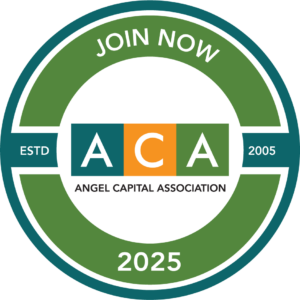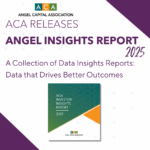Angel Insights Blog

Thursday, August 27, 2020
Accredited Investor Definition Expanded to Increase Access to Investment Opportunities
By: Pat Gouhin, Chief Executive Officer
After ACA’s multi-pronged, multi-year advocacy for amendment to the “accredited investor” definition, we are pleased to report we’ve met with success. The Securities and Exchange Commission announced yesterday that the definition of an “accredited investor” has preserved the existing income thresholds and has been expanded to provide more access to private equity by allowing investors to qualify based upon new criteria.
The amendment updates the definition to allow investors to qualify as accredited investors based on professional certifications and designations, or other credentials issued by an accredited education institution as well as the long-standing income-based criteria.
“Today’s amendments are the product of years of effort by the Commission and its staff to consider and analyze approaches to revising the accredited investor definition,” said Chairman Jay Clayton. “For the first time, individuals will be permitted to participate in our private capital markets not only based on their income or net worth, but also based on established, clear measures of financial sophistication. I am also pleased that we have expanded and updated the list of entities, including tribal governments and other organizations, that may qualify to participate in certain private offerings.”
ACA has supported the SEC’s incremental expansion of the accredited investor pool and other proposals to expand startup access to angel capital. ACA also applauds the new ways to become an accredited investor that are not related to income or net worth.
We have been working with the SEC for many years to recognize the importance of using financial sophistication measures in addition to income or net worth measures. With the launch of seven new educational classes in early 2020 as part of ACA Angel University, we believe we are well positioned to make the case to the SEC that our evolving credentialing program should be one of the premier paths to follow to qualify as an “accredited investor” …and that is just what we plan to do.
Amendments to the accredited investor definition in Rule 501 (a) include:
- Addition of a new category to the definition that permits natural persons to qualify as accredited investors based on certain professional certifications, designations or credentials or other credentials issued by an accredited educational institution, which the Commission may designate from time to time by order. In conjunction with the adoption of the amendments, the Commission designated by order holders in good standing of the Series 7, Series 65, and Series 82 licenses as qualifying natural persons. This approach provides the Commission with flexibility to reevaluate or add certifications, designations, or credentials in the future. Members of the public may wish to propose for the Commission’s consideration additional certifications, designations or credentials that satisfy the attributes set out in the new rule;
- Inclusion as accredited investors, with respect to investments in a private fund, natural persons who are “knowledgeable employees” of the fund;
- Clarification that limited liability companies with $5 million in assets may be accredited investors and add SEC- and state-registered investment advisers, exempt reporting advisers, and rural business investment companies (RBICs) to the list of entities that may qualify;
- Addition of a new category for any entity, including Indian tribes, governmental bodies, funds, and entities organized under the laws of foreign countries, that own “investments,” as defined in Rule 2a51-1(b) under the Investment Company Act, in excess of $5 million and that was not formed for the specific purpose of investing in the securities offered;
- Addition of “family offices” with at least $5 million in assets under management and their “family clients,” as each term is defined under the Investment Advisers Act; and
- Addition of the term “spousal equivalent” to the accredited investor definition, so that spousal equivalents may pool their finances for the purpose of qualifying as accredited investors.
ACA enthusiastically endorses this new approach and thanks Chairman Clayton and the SEC Commissioners for this important action to increase access to capital for small, innovative companies that fuel our economy.






